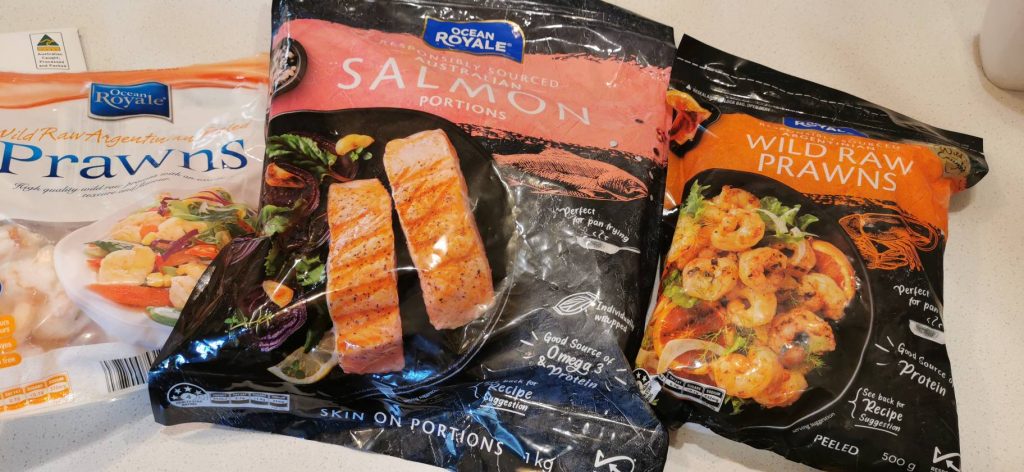What are they?

Omega-3 fatty acids are an important component in the formation of all cell membranes, and they are also used to produce signalling molecules and regulating hormone production. They also form an importance in the fatty tissue of brain cells.
Omega-3s are a type of polyunsaturated fatty acid (PUFA) and when you break them down, consist of eicosapentaenoic acid (EPA) and docosahexaenoic acid (DHA), as well as their essential precursor alpha-linolenic acid (ALA).
Why do I need them?
There can be many symptoms relating to a low status in omega-3s, and these can include high levels of inflammation, joint pain and stiffness, dry and irritated skin, poor mental health, and poor hair texture.
Omega-3’s are the healthy fats that our bodies need to create hormones, lubricate joints, nourish and soften the skin, and create healthy brain cells. They also help in managing inflammation around the body, which reduces cardiovascular risk, making their importance a great one. They also form part of our healthy cholesterol (HDL), the lipoprotein that actually removes LDL cholesterol from artery walls, further improving cardiovascular health and negating the need for cholesterol lowering medications.
Unfortunately, testing for Omega-3 status is very difficult and does not form part of routine blood testing. Even the Spectrometer cannot provide this information, so it can be difficult to diagnose a deficiency. Symptoms can also be related to other deficiencies or imbalances, so sometimes it becomes more of a process of elimination, rather than direct testing for Omega 3 nutritional status.
For example, thinning, dry and brittle hair or an itchy scalp, may be due to thyroid issues or a histamine type response, or an allergy, or it may also be a sign of low omega 3 intake. Low zinc or Silica levels can also present with poor hair and skin.
Depression or Anxiety can be caused by low iron, poor diet, high levels of inflammation, poor gut health, high heavy metal levels, poor methylation in the liver, low zinc or lithium status, or low omega-3 levels, or even a combination of several of these things.
Why would I be low in them?
Getting enough omega-3s can be tricky, especially if you are vegetarian or vegan, or do not eat a lot of fish. Unfortunately, the poor health of our oceans and the high amount of farmed fish that is now in our supermarkets, mean obtaining clean fresh fish can be challenging. Most of the easily obtainable salmon is farmed, poorly fed, and full of antibiotics and chemicals, and large fish such as Tuna, often contain Mercury.
The western diet includes high levels of processed foods, and these are generally low in healthy fats and high in omega-6s, which can cause a lot of inflammation, and give rise to bad cholesterol levels.
The Mediterranean Diet includes plenty of small fresh fish such as sardines, mackerel, and wild caught salmon, providing ample brain loving, inflammation lowering healthy fats to the table.
Poor absorption through the digestive system due to low bile production, may also cause a deficiency. Gallstones or gall bladder removal is very common in western countries and is often due to uncontrolled glucose levels and/or high consumption of processed foods, giving rise to high cholesterol and the formation of stones.
How can I get enough?
Getting your Omega-3s can be easier than you think, and you may be surprised to know that there are many plant based foods that are high in these healthy fats. These include Walnuts, Chia Seeds, Hemp and Flax seeds and oils from Flax and Hemp seeds. Another plant-based food that you may be surprised to know is high in Omega-3, is Brussel Sprouts! These little balls of goodness are also high in vitamin K, vitamin C and fibre, making them a little bundle of health.
If you like to eat fish, look for smaller fish such as mackerel, wild caught salmon, herring, oysters, fresh sardines (preferably not tinned), anchovies and caviar. Good quality pasture raised eggs can also be rich in omega-3s.
Supplementation often comes in the form of Fish oil or Krill oil, but again, the sources and level of toxicity within the oils, can often be questionable, so using cleaner plant based sources are generally going to be safer, and consuming whole food sources is always preferable over a supplement.
Getting your daily dose of Omega-3 can be as simple as a breakfast of Chia Pudding or adding some Flax or Hemp oil into your smoothie or onto your muesli. You can make a delicious salad dressing with the oils and add some hemp seeds to your salad.
Cook Brussel sprouts by slicing them up and pan-frying them in a little butter and maybe a little prosciutto for extra flavour. Try roasting or tossing them sliced up into a stir-fry. Gone are the days of boiling them up…yuk!! They really are delicious when they are treated with respect.
Add walnuts to your breakfast, or snack on some walnuts and sliced apple or pear, or top some yoghurt with some toasted walnuts and hemp seeds. Ground flax seeds can also be used in many ways, including making a pudding dessert. There really is an endless way to include omega-3 foods into your day and your body will thank you for it.
For some delicious recipes and ideas on how you can incorporate more Omega-3 in your day, please have a look at the eBook called “Omega-3 is good for me!” in the shop.

